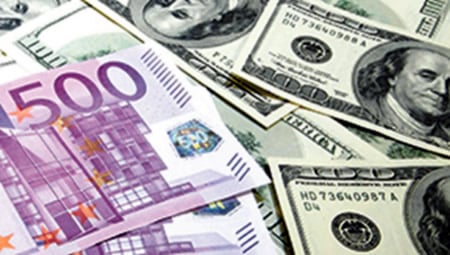A parallel market in foreign exchange (FX) refers to an unofficial marketplace where currencies such as USD, GBP, and EUR are traded for the local currency outside the regulated channels. It closed at $/1,685 at the time of this publication.
In Nigeria, this market exists alongside the official FX market, often exhibiting a significant disparity between official and unofficial exchange rates. This phenomenon is particularly prevalent in countries that maintain multiple exchange rates.
In Nigeria, the Central Bank of Nigeria (CBN), the apex financial authority, is responsible for regulating the FX market to stabilize the naira against other major currencies.
However, due to a limited supply of foreign exchange in the official market, the black market has gained substantial traction. Investors and traders are frequently ‘forced’ into the black market for its greater accessibility compared to the official channels.
Why Does a Black Market Rate Persist in Nigeria’s Forex Market?
The persistence of a black market rate in Nigeria’s FX market can be attributed to the CBN’s challenges in enforcing its monetary policies effectively.
When the apex bank fails to regulate the market adequately, it creates an environment where buyers and sellers set exchange rates that benefit both parties, often diverging significantly from the official rates.
In economies where the black market dominates, the apex bank loses a degree of monetary control, especially when the official exchange rate is inaccessible to investors and businesses.
This situation leads to a more porous foreign exchange market, placing additional pressure on the naira. Consequently, FX users increasingly rely on the black market as a “savior” during financial emergencies.
For example, obtaining approval through the CBN’s Trade Monitoring System (TMS) for foreign exchange needs, such as paying foreign school fees, can take four weeks or more. This delay drives many students and importers who require FX for their businesses to seek alternatives in the black market.
Dramatic Fluctuations in the Black Market Exchange Rate
Over the past two years, there has been a dramatic widening of the gap between the official and unofficial exchange rates in Nigeria. For instance, on December 31, 2020, the unofficial market rate for one US Dollar (USD) was NGN470. By the end of November 2021, the rate had surged to NGN540 per USD, reflecting a significant depreciation of the naira.
As of the latest update on September 26, 2024, the black market rate stands at NGN1,685 per USD, while the official rate at the Nigeria Foreign Exchange Market (NAFEX) closed at NGN1,653.27 per USD on September 25, 2024. This substantial increase underscores the ongoing volatility and challenges within Nigeria’s FX markets.
The unofficial foreign exchange market in Nigeria operates outside regulatory oversight, rendering it illegal. Participants in this market risk arrest and other legal consequences, as evidenced by the CBN’s actions against platforms like AbokiFX.com in 2021 and arrest of BDCs operators in February and May 2024 in Abuja and Lagos.
Moreover, exchange rates in the black market can vary significantly across different cities such as Lagos, Ibadan, Abeokuta, and Kaduna, influenced by local economic activities, investor and trader movements, and demand dynamics.
Conclusion
It is evident that the enduring presence of a black market for foreign exchange in Nigeria reflects deeper structural issues within the country’s monetary policy and economic framework.
The significant disparity between official and unofficial rates indicates a lack of confidence in the central bank’s ability to manage currency stability effectively.
To mitigate the reliance on the parallel market, it is crucial for policymakers to enhance transparency, increase the availability of foreign exchange through official channels to real investors, who contribute meaningfully to the economy instead of selling FX to BDCs, and implement robust regulatory measures.
Addressing these challenges will not only stabilize the naira but also foster a more resilient and trustworthy financial environment for investors and businesses alike
Until Nigeria resolves these structural issues, the black market will continue to thrive, further complicating the country’s foreign exchange management and putting additional pressure on the naira.
The CBN must address these gaps, or the parallel market will keep serving as a “shadow” economy, dictating a significant portion of FX transactions.


